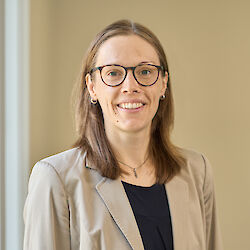Future Meeting Space research zooming in on purpose of meetings
Phase III of Future Meeting Space innovation network is co-funded by the PCMA Foundation
What’s the purpose of meetings and what’s their role in organisations’ communications mix? The GCB German Convention Bureau and its research partners are currently diving deep into that question as part of the “Future Meeting Space” (FMS) innovation project, launched in 2015 and now in its third phase.
After looking at future meeting set-ups, formats and how to engage different attendee types to create successful events in the two previous project phases, research phase III is now completing the picture and exploring the “Why” of meetings and events. “With our FMS phase III research, we’re aiming at highlighting the purpose of meetings and providing the meeting community with hands-on advice how to stay on top of all the requirements that the different stakeholders are faced with in an environment shaped by the digital transformation,” says GCB managing director and co-founder of the FMS innovation project Matthias Schultze. Designed to build on FMS research results so far, the current study is scheduled to be completed in December 2020. Alongside research partners, it is co-funded by the Education Foundation of the Professional Convention Management Association (PCMA) that also supported the second FMS research phase.
“Meetings and events play a vital role in global economic and social transformation. As a matter of fact it is the first step in moving from strategy to execution," said Sherrif Karamat, CAE, president and CEO of PCMA. "The third phase of this important research will help us better shape the role of meetings and events as well as help us with our own evolution in order to be relevant in a digitally interdependent world.”
The study is, among others, analysing and evaluating the future role and purpose of meetings and events in organisations’ communication mix and the competencies and skills required to organise successful meetings that fulfil the objectives of business events. To that end, the GCB and its research partners from the meetings industry have recently run and completed a series of focus groups to develop user stories.
A recent study trip to Barcelona for meetings with local start-ups and to explore the purpose of meetings through case studies will also feed into the study. Next on the agenda is an updated version of the “Innovation Catalogue”, first published as part of research phase I, which will be released in early 2020. This “Innovation Catalogue Reloaded” will include international trends and innovations in big/smart data, social profiling, 5G, AI and cyber security that are relevant for the meetings and events community.
The FMS innovation project was launched by the GCB and the European Association of Event Centres (EVVC) in collaboration with the Fraunhofer Institute for Industrial Engineering IAO to help create a vision for how people will meet in the future and to deliver practical, hands-on tools for meeting planners and suppliers to help them get ahead of the curve of what’s to come. Results so far include, from phase I, an “Innovation Catalogue” round-up of new and future technologies, six “Future Meeting Scenarios” as well as the “Future Meeting Room” and from phase II a report on how to create engaging events, including an overview of different attendee types, event success factors and recommendations for actions. Research partners of the third research phase are KFP Five Star Conference Service GmbH, Xing Events GmbH, Maritz Global Events Inc., Radisson Hotels, Seven Centers of Germany, Munich Airport Academy, Mesago Messe Frankfurt, EVVC European Association of Event Centers and GCB German Convention Bureau e.V.
Notes to editors
Innovation network “Future Meeting Space”
The innovation network “Future Meeting Space” (FMS) was created in 2015 by the German Convention Bureau (GCB) and the European Association of Event Centres (EVVC) in collaboration with the Fraunhofer Institute for Industrial Engineering IAO. It looks into trends, innovations, and societal developments and their possible influence on the meetings industry. In this context, research focuses on the design of future meetings and events, the evolving needs of participants and the resulting requirements that anybody involved in the process of planning and creating meetings and events needs to consider.
About the GCB German Convention Bureau
The German Convention Bureau (GCB) represents and markets Germany as a destination for conventions, meetings, events and incentives both on a national and international scale. It is the first point of contact for companies, associations and organisations around the world planning events in Germany. As Strategic Partners, Lufthansa German Airlines, Deutsche Bahn AG (German Railways), and the German National Tourist Board (GNTB) support the work of the GCB.
About the Fraunhofer Institute for Industrial Engineering IAO
Fraunhofer Institute for Industrial Engineering IAO helps companies and institutions introduce new business models and efficient processes to make their businesses more successful. With their in-depth knowledge of organisational structures and technologies, they provide the skills needed to put applied research into practice. They participate in international networks, investigating and shaping the frontline themes that are most relevant to the future of Germany as a business location. Their goal is to systematically optimise the ways in which people, organisations and technology interact.
 © GCB/ Patrick Kuschfeld
© GCB/ Patrick Kuschfeld
Dr. Martina Neunecker
- Director Communications & Strategy
- +49 69 24293025
- neunecker@gcb.de
 ©
©